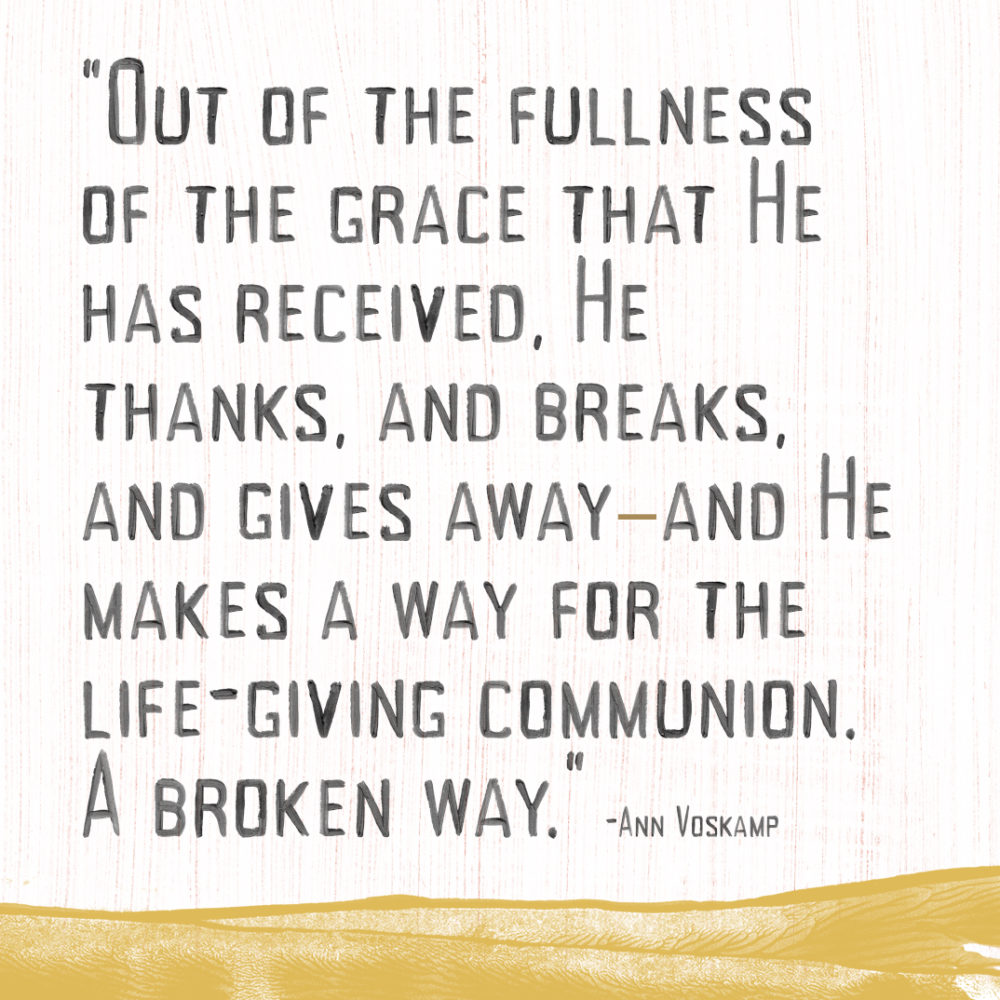And he took bread, gave thanks and broke it, and gave it to them, saying, “This is my body given for you; do this in remembrance of me.”
Luke 22:19
It’s Thursday. Rabbi Jesus and his students gathered to celebrate the Passover in the same way faithful Jews had for generations before. With one shocking difference.
The typical Passover meal (seder) lasted for several hours. Food, song, scripture reading, and prayer (and four glasses of wine) all combined to retell the story of how the LORD delivered his people out of slavery in Egypt long ago and to look forward to the day he would deliver them once again.
Every ingredient of the evening became a symbol imbued with meaning. The unleavened bread, for instance, represented not only the haste with which God’s people had left Egypt, but also purity. In antiquity, bread was leavened by adding a small amount of old, fermented dough to new, unfermented dough. Microbes from the old worked their way through the new and caused it to rise.
But leaven also caused the bread to sour over time, slowly decay, and eventually rot. Jews associated leaven with pride that puffs up and with sin that contaminates, bringing destruction and eventually death. The bread used in the Passover feast was unleavened – pure.
Before the meal began, the patriarch of the family would take the unleavened bread and tear off a piece called the afikomen (pronounced uh·fee·kuh·muhn) to be hidden under a cloth (Exodus 12:34). The whole bread symbolized Israel and the afikomen, which meant “the coming one,” represented the Messiah who had been torn from Israel and hidden away in the future.
At the end of the meal, after the deliverance story had been remembered in food, song, and scripture reading; everyone reclined around the table in symbolic enjoyment of their liberation. Then the afikomen was brought out of hiding, broken, and shared with everyone at the table. The symbolism was clear: One day God would remember his people once again and send the Messiah to deliver them, and his salvation and peace would be for everyone.
There was a widespread expectation in Jesus’ day that the Messiah would arrive during Passover. Rabbi Joshua said, “In that night (Passover) they were redeemed, and in that night they will be redeemed.”
Picture Jesus and his students reclining at the table. The dishes sit empty and their stomachs are full.
Jesus reaches for the cloth and brings the afikomen out of hiding. He gives thanks, breaks the bread, and gives it to his friends, saying, “This is my body.”
It’s a startling, marvelous revelation.
Jesus is the unleavened bread – holy and pure!
Jesus is the Coming One – broken to deliver and be enjoyed by all people!
“Do this and remember,” Jesus said. Remember that God has once again remembered you.

For Reflection
• What leaven in my life today do I need Jesus to remove?
• What slavery today do I need Jesus to deliver me from?
Our Pray
Deliverer, thank you for remembering us.
You sent Unleavened Bread to make us pure. You sent the Coming One to make us free.
Today, we remember all the ways you have remembered us.
Amen.
 Shaun Groves
Shaun Groves